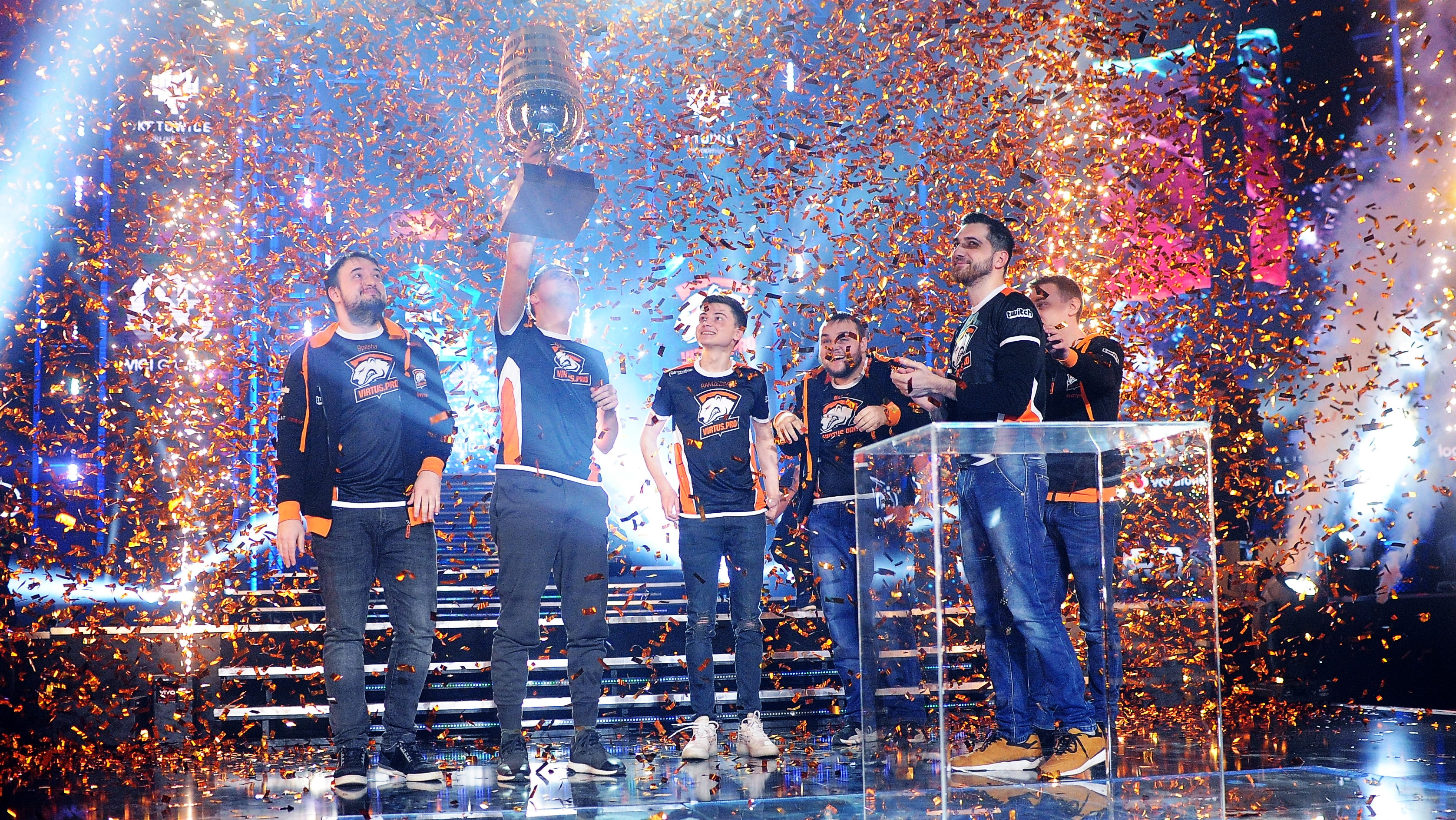ESL suspends Russian esports teams and competitions over invasion of Ukraine
Virtus.pro and Gambit have both been excluded from competitions, and others could follow.

Major esports operator ESL has announced that "organizations with apparent ties to the Russian government, including individuals or organizations under alleged or confirmed EU sanctions related to the [Ukrainian] conflict," will not be allowed to compete in its Pro League events. ESL events set to take place within the Commonwealth of Independent States (CIS) region, which includes Russia, Armenia, Azerbaijan, Belarus, Kazakhstan, Kyrgyzstan, Moldova, Tajikistan, and Uzbekistan, have also been suspended.
"We are all shocked and saddened by the Russian invasion into Ukraine and hope for a swift and peaceful resolution," ESL said in a statement. "After monitoring the situation, we are now putting an initial set of actions in place.
"Together with our partners and employees, we are currently working on actions to support the people suffering from the current tragedy with donations to UNHCR, paid time off for employees to volunteer for humanitarian relief and paid time off for affected colleagues."
Two teams, Virtus.pro and Gambit, have thus far been identified for exclusion. Rather like the Olympics, however, players from those teams will be allowed to take part in events "under a neutral name, without representing their country, organization or their teams’ sponsors on their clothing or otherwise."
Our statement on Ukraine.Read more: https://t.co/QMrakmtC5P pic.twitter.com/fFebyPoXMoMarch 2, 2022
Neither Virtus.pro nor Gambit have commented on the suspension, but Virtus.pro issued a statement yesterday alleging that it was being threatened with disqualification from Gamers Galaxy: Dota 2 International Series Dubai 2022, unless it either issued a public statement about the invasion (presumably supportive of Ukraine) or agreed to "renounce our tag and jerseys and play without affiliation to any particular club or country." The team blamed "the Ukrainians" for forcing tournament organizers to make the move by "threatening to sabotage the event" if they did not.
"A lot of Russian/CIS clubs are under a lot of pressure right now," the team said. "Some tournament operators are already conducting a witch hunt. We urge them to stop and not reflect on traditional sports, where politics run the show. Esports is beautiful in its diversity: People from different countries and of different descent could be playing together under one tag, and territorial affiliation is only measured in ping and timezones."
pic.twitter.com/ENG8Auc3E0March 1, 2022
"Virtus.pro will not fall for this intimidation. We won't take off our jerseys and won't tolerate this pressure."
The biggest gaming news, reviews and hardware deals
Keep up to date with the most important stories and the best deals, as picked by the PC Gamer team.
In its own statement released on February 25, Gambit said that it's also "under a lot of pressure," largely expressed through social media. The tone of the statement is less inflammatory, but the underlying sentiment is similar. "We ask for one thing—let's stay human in any situation, let's support each other during this difficult moment," it said. "Let's not engage politics in esports, but engage mutual respect and support. We stand for peace."
pic.twitter.com/SqRUcokpE0February 25, 2022
ESL's decision to suspend Russian teams and events is the latest in a growing series of actions that have left Russia increasingly isolated both in the real world and the videogame ecosystem. The move comes just hours after Ukraine's deputy prime minister urged game developers and esports platforms to stop doing business in and with Russia, and virtually side-by-side with EA's decision to remove Russian teams from its FIFA and NHL games. Game studios around the world have also spoken out forcefully against the Russian invasion of Ukraine, and many of them are raising funds to support its victims.
I've reached out to Virtus.pro and Gambit for further comment, and will update if I receive a reply.

Andy has been gaming on PCs from the very beginning, starting as a youngster with text adventures and primitive action games on a cassette-based TRS80. From there he graduated to the glory days of Sierra Online adventures and Microprose sims, ran a local BBS, learned how to build PCs, and developed a longstanding love of RPGs, immersive sims, and shooters. He began writing videogame news in 2007 for The Escapist and somehow managed to avoid getting fired until 2014, when he joined the storied ranks of PC Gamer. He covers all aspects of the industry, from new game announcements and patch notes to legal disputes, Twitch beefs, esports, and Henry Cavill. Lots of Henry Cavill.

